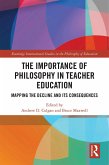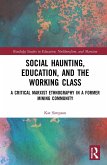This brief, interpretive history of American schooling focuses on the evolving relationship between education and social change. Detailed accounts of the experiences of women and minority groups in American history consider how their lives have been affected by education at key points in the past.
Dieser Download kann aus rechtlichen Gründen nur mit Rechnungsadresse in A, B, BG, CY, CZ, D, DK, EW, E, FIN, F, GR, HR, H, IRL, I, LT, L, LR, M, NL, PL, P, R, S, SLO, SK ausgeliefert werden.
"Its adept treatment of historical developments with interpretive themes is accomplished in a remarkably concise and accessible manner." -Sevan Terzian, University of Florida, USA
"I really like the book's central question: do schools change society or does society change schools? While students quickly realize the answer is 'both,' this interplay throughout the text works nicely for me. It also supports well another central question that I usually emphasize: the 'education for what purpose' question." -Monica McKinney, Meredith College, USA
"I would recommend this book to all educators, administrators, and researchers interested in the historical influences on education and social change. This book is especially important for state, local, and federal policy makers to reexamine the damages of history on marginalized groups." -Education Review
"I really like the book's central question: do schools change society or does society change schools? While students quickly realize the answer is 'both,' this interplay throughout the text works nicely for me. It also supports well another central question that I usually emphasize: the 'education for what purpose' question." -Monica McKinney, Meredith College, USA
"I would recommend this book to all educators, administrators, and researchers interested in the historical influences on education and social change. This book is especially important for state, local, and federal policy makers to reexamine the damages of history on marginalized groups." -Education Review









